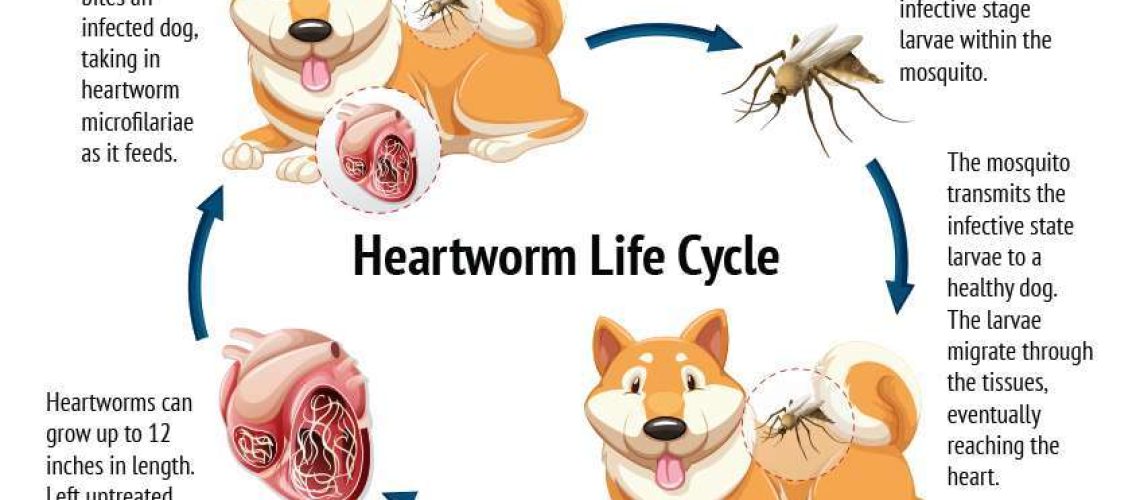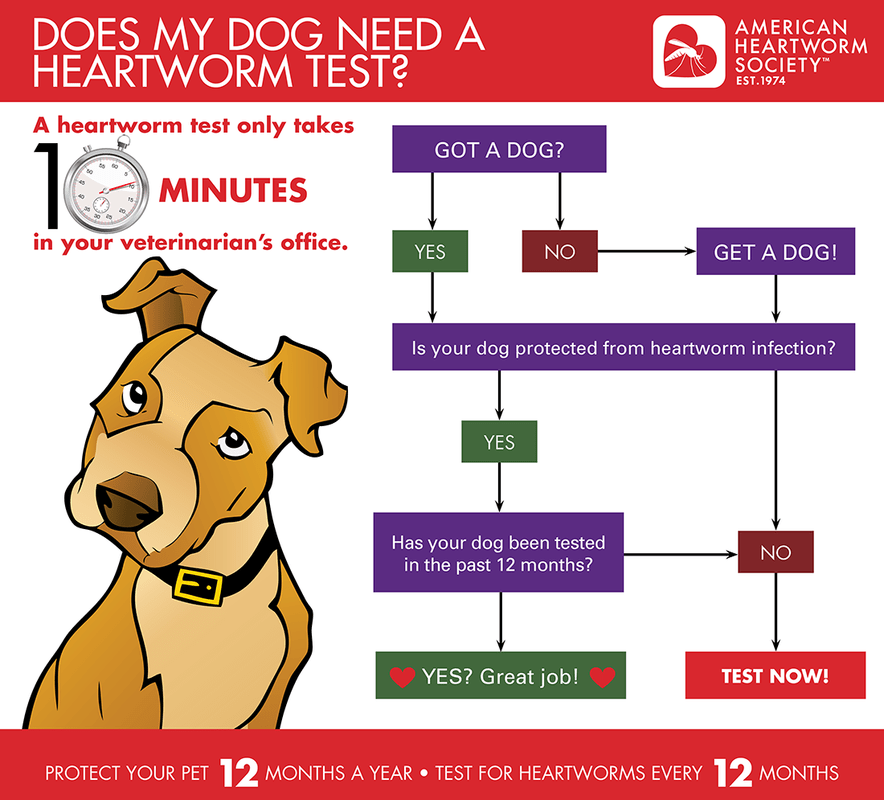Key Takeaways:
- Heartworms are not transmitted directly from dogs to humans.
- The primary mode of transmission for heartworms is through mosquito bites.
- Humans can be infected with a different type of worm called Dirofilaria repens, which is similar to heartworm but less severe.
- Preventive measures such as using mosquito repellents and keeping dogs on heartworm prevention medication can reduce the risk of infection in both dogs and humans.
- If you suspect you or your dog may have been infected with heartworms or any other parasites, it is important to consult a healthcare professional or veterinarian for proper diagnosis and treatment.
Are you a dog owner who loves spending time with your furry friend? If so, then understanding the topic of heartworms is crucial to ensure the health and well-being of both you and your beloved pet. Did you know that heartworm disease can be transmitted from dogs to humans? Yes, that's right! In this article, we will delve into the question: "Can I Catch Heartworms From My Dog?" By exploring this subject, you will not only gain valuable insights into the risks associated with heartworm transmission but also discover effective ways to protect yourself and your four-legged companion. So let's dive in and uncover the facts about heartworms together!
Understanding Heartworms: What They Are and How Dogs Get Them
What are Heartworms?
Heartworms are a type of parasite that can infect dogs. They are long, thin worms that live in the heart, lungs, and blood vessels of infected animals. These worms can grow up to a foot long and cause serious damage to the organs they inhabit. Heartworm disease is more common in certain areas where mosquitoes are prevalent.
How Do Dogs Get Heartworms?
Dogs get heartworms through the bite of an infected mosquito. When a mosquito bites an infected animal, it picks up tiny baby worms called microfilariae from the animal's blood. These microfilariae develop into infective larvae inside the mosquito. When the mosquito then bites another dog, it injects these larvae into the dog's bloodstream. Over time, these larvae mature into adult worms and make their way to the heart and lungs.
Can Humans Catch Heartworms from Their Pet Dogs?
Can Humans Get Infected with Heartworms?
No, humans cannot catch heartworms from their pet dogs. The parasites that cause heartworm disease in dogs do not typically infect humans. However, it is still important to protect your pet from heartworm infection because preventing the disease in dogs also helps reduce the overall prevalence of heartworm-carrying mosquitoes in your area.
Taking Precautions
While humans may not be at risk for heartworm infection from their dogs, it is always a good idea to take precautions when handling pets with any kind of parasite infestation. Washing hands thoroughly after handling your dog or cleaning up after them can help prevent other types of infections or diseases that could be transmitted between animals and humans.
Signs to Watch for: Possible Symptoms of Heartworms in Dogs
Common Symptoms of Heartworms
Heartworm disease can be difficult to detect in its early stages as dogs may not show any symptoms. However, as the infection progresses, some common signs to watch for include:
- Coughing
- Difficulty breathing
- Fatigue and weakness
- Weight loss
- Decreased appetite
When to See a Veterinarian
If you notice any of these symptoms in your dog, it is important to consult with a veterinarian. They can perform tests to determine if your dog has heartworms and recommend the appropriate treatment plan.
Protecting Your Beloved Dog: Tips for Preventing Heartworm Infection
Use Preventive Medications
One of the best ways to protect your dog from heartworm infection is by using preventive medications. These medications are available in various forms such as pills, topical solutions, or injections. They work by killing any immature heartworms that may have been transmitted to your dog before they can develop into adult worms.
Avoid Mosquitoes
Since mosquitoes are responsible for transmitting heartworm larvae, it is important to take steps to minimize your dog's exposure to mosquitoes. Avoid taking your dog outside during peak mosquito activity times, such as dawn and dusk. Use mosquito repellents specifically designed for dogs when necessary.
The Importance of Regular Veterinarian Check-ups for Heartworm Prevention
Veterinarian Check-ups
Regular check-ups with a veterinarian are crucial for preventing heartworm infection in dogs. During these visits, the veterinarian can assess your dog's overall health and recommend the appropriate preventive measures based on their age, lifestyle, and risk factors.
Heartworm Testing
As part of the check-up, the veterinarian may also perform a heartworm test. This involves taking a small blood sample from your dog and testing it for the presence of heartworm antigens. Early detection of heartworm infection allows for prompt treatment and prevents further complications.
Treating Heartworms in Dogs: Is it Possible? How is it Done?
Treatment Process
Treating heartworms in dogs is possible, but it can be a complex and lengthy process. The treatment typically involves multiple steps, including medication to kill the adult worms, as well as additional medications to eliminate any remaining larvae or microfilariae.
Rest and Restriction
During treatment, it is important to restrict your dog's physical activity to prevent complications. Resting helps reduce the risk of blood clots or other issues that can arise when the worms start to die off.
The Dangers of Untreated Heartworms: Can They Be Fatal for Dogs?
Potential Consequences
If left untreated, heartworm disease can be fatal for dogs. As the worms multiply and grow within the dog's body, they cause damage to the heart, lungs, and blood vessels. This can lead to severe respiratory problems, organ failure, and ultimately death.
Preventing Complications
Early detection and timely treatment are crucial in preventing these complications. Regular preventive measures such as medication and veterinary check-ups are essential in keeping your beloved dog safe from this potentially life-threatening disease.
In conclusion, you cannot catch heartworms directly from your dog. However, it is important to protect your dog from heartworms to prevent their spread and keep them healthy.
What are the symptoms of heartworms in humans?
Individuals experiencing symptoms may exhibit a cough, which could include coughing up blood, chest pain, fever, and an accumulation of excess fluid in the tissues surrounding the lungs and chest. In rare cases, D. immitis worms have been detected in areas outside of the lungs, such as the brain, eye, and testicle.
How long does it take to find out if your dog has heartworms?
Puppies younger than 7 months can begin taking heartworm prevention medication without undergoing a heartworm test. It typically takes at least 6 months for a dog to test positive for heartworms after being infected. However, it is recommended to have them tested 6 months after their first visit, then again 6 months later, and annually thereafter to confirm they remain free of heartworms.
Do heartworm positive dogs need to be isolated?
Misconception: Heartworm disease can be spread from one pet to another. Reality: If one of your pets is diagnosed with heartworm disease, it is a matter of concern, but there is no need to isolate or quarantine your infected pet. Heartworms can only mature into adults through mosquito transmission, so pets that are heartworm-positive do not pose a risk to other animals.
What kills heartworms in humans?
When the heartworm microfilariae move through the skin, they usually perish because heartworms cannot survive in a human body, even if they enter the bloodstream. After the heartworms die, the human immune system responds by causing inflammation in an attempt to eliminate the heartworm tissue.
Can heartworms be found in humans?
Heartworm infection is common in both dogs and humans in the eastern and southeastern regions of the United States. It is believed that the infection is transmitted to humans through mosquito bites. Once infected, the microfilaria migrate to the subcutaneous tissues and mature over a period of 80-120 days.
What are the chances of getting worms from your dog?
Dogs commonly have intestinal worms, but it is rare for humans to become ill from the worms that affect dogs. If you are worried about your health or experience any symptoms, it is advisable to seek medical advice from your doctor.

















